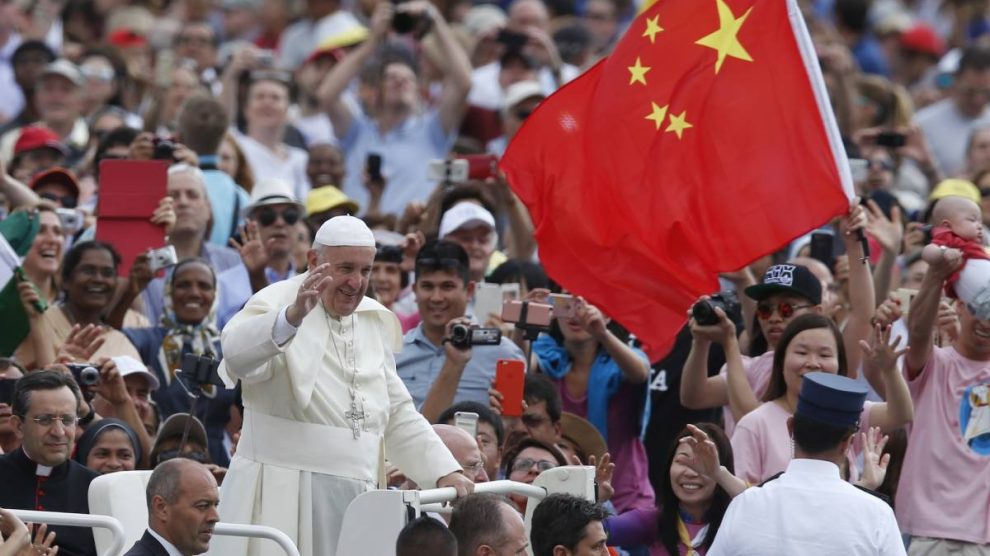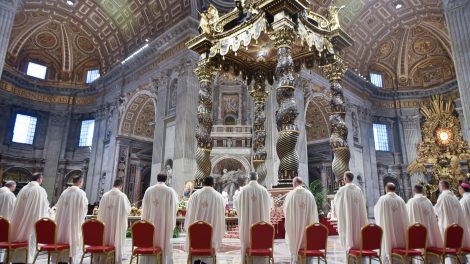A new bishop in Shanghai. On Tuesday, Bishop Shen Bin, head of the Chinese Council of Bishops, was installed in the Diocese of Shanghai. The letter of appointment came from the Council itself, which is not recognised by the Holy See and is strictly subject to the Chinese Communist Party.
- According to AsiaNews, the appointment’s origin reveals “that the (official) Chinese Patriotic Association did not agree on the choice with the Vatican.” Meaning the appointment was unilateral and not approved by the Pope.
Replacing a dissident. The Shanghai see has been vacant for ten years after Bishop Ma Daqin – who was recognised by both Beijing and the Vatican – was placed under house arrest in the Sheshan seminary for daring to resign from the Patriotic Association immediately after his ordination. He is still serving that sentence.
- On WeChat, the new bishop of Shanghai said he would continue the tradition of “patriotism and love” for the Church in the Chinese city. In what AsiaNews dubbed a “strong reminder of the Party’s dictates,” Bishop Shen stressed that he would adhere to the principle of independence and self-administration as well as efforts to “sinicise” Catholicism in China.
The Vatican’s reaction. “The Holy See had been informed a few days ago of the decision of the Chinese authorities” to transfer the Bishop and “learned from the media of the installation this morning”, the director of the Holy See Press Office, Matteo Bruni, reported in a communication to journalists. “For the moment”, he added, “I have nothing to say about the Holy See’s assessment of the matter”.
Why it matters. According to the 2018 Sino-Vatican agreement, then renewed in 2020 and 2022, the choice of new Chinese bishops should be shared by the Holy See and Beijing authorities. This pact was an attempt to stabilise relations, which were strained by tensions over who had jurisdiction over the dioceses.
- China, ruled by the authoritarian CCP, is wary of foreign entities wielding authority within the country. On the other hand, the Catholic Church is a unitary body and oversees bishop nominations all over the world.
- In November, the Vatican accused Chinese authorities of violating the agreement by appointing Bishop John Peng Weizhao as auxiliary bishop of the Jiangxi diocese.
The expert’s take. “The Chinese choice seems to reveal nervousness. It falls within a grey area of the agreement on bishop appointments,” sinologist Francesco Sisci told our sister website. “In fact, [Bishop] Shen is not a new bishop but has been transferred from another diocese, which is usually the responsibility of the national bishops’ conference. That, however, doesn’t exist in China. Instead, there’s the Council of Bishops chaired by [Bishop] Shen himself.”
- For the moment, he stressed, it is necessary “to try to be extremely prudent and seek new contacts and talks.”





